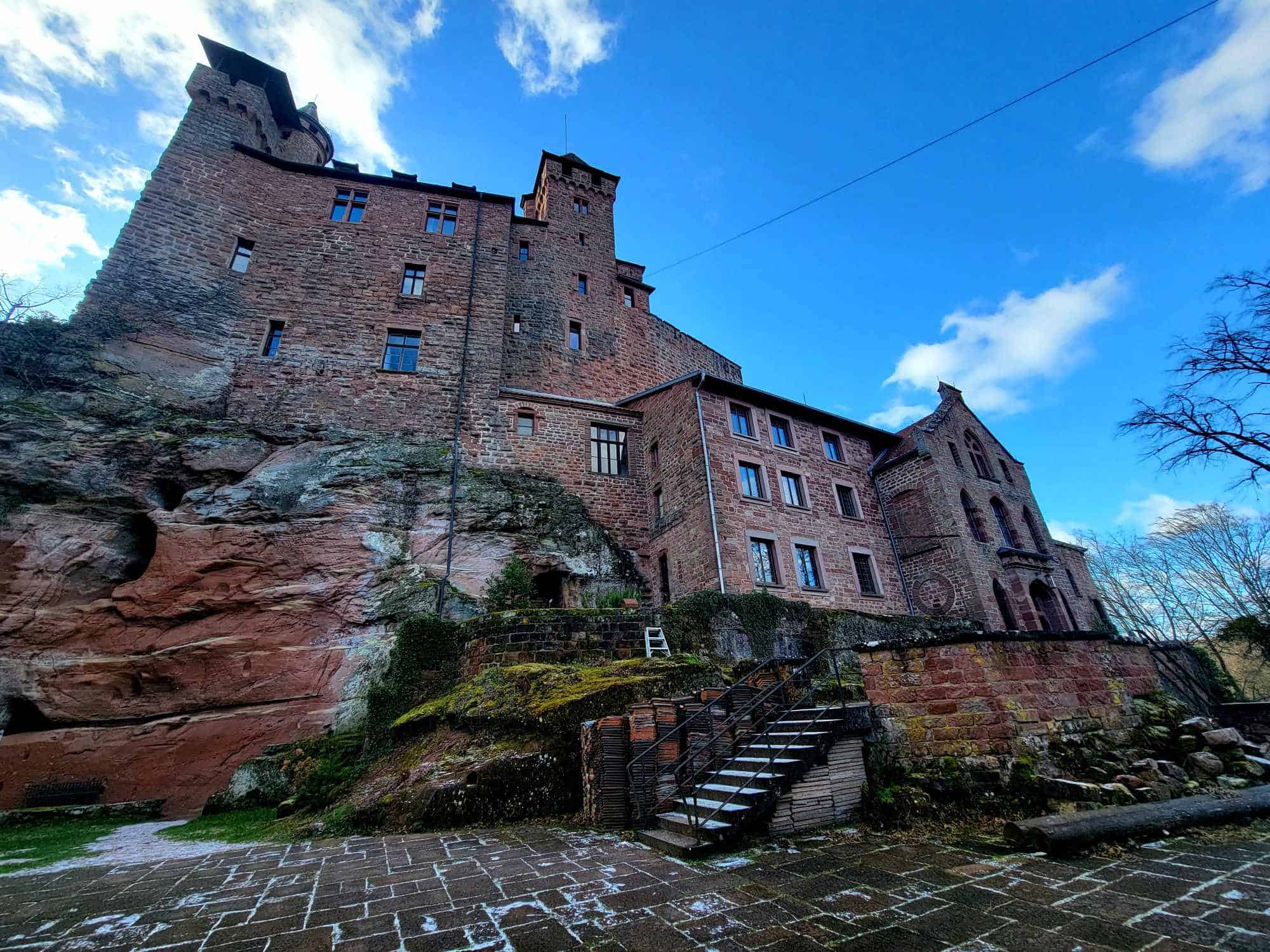Berwartstein Castle (Burg Berwartstein) is a rare gem tucked away in the Palatinate Forest in Southwest Germany. The Rheinland Palatinate is filled with castles, but Berwartstein is one of the very few that has been restored, and is open to the public for exploration and tours. And it’s still inhabited by the current owners! Don’t worry though, there’s plenty of castle to explore including subterranean tunnels, and stunning terraces with views for miles.
History of Berwartstein Castle (Burg Berwartstein)
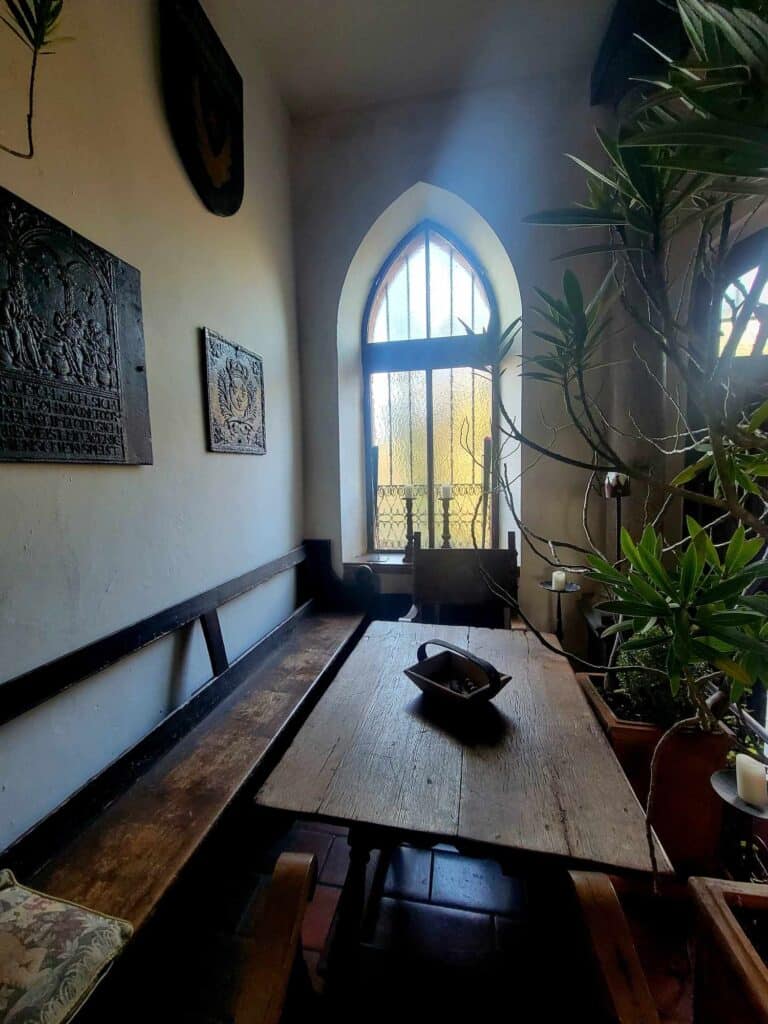
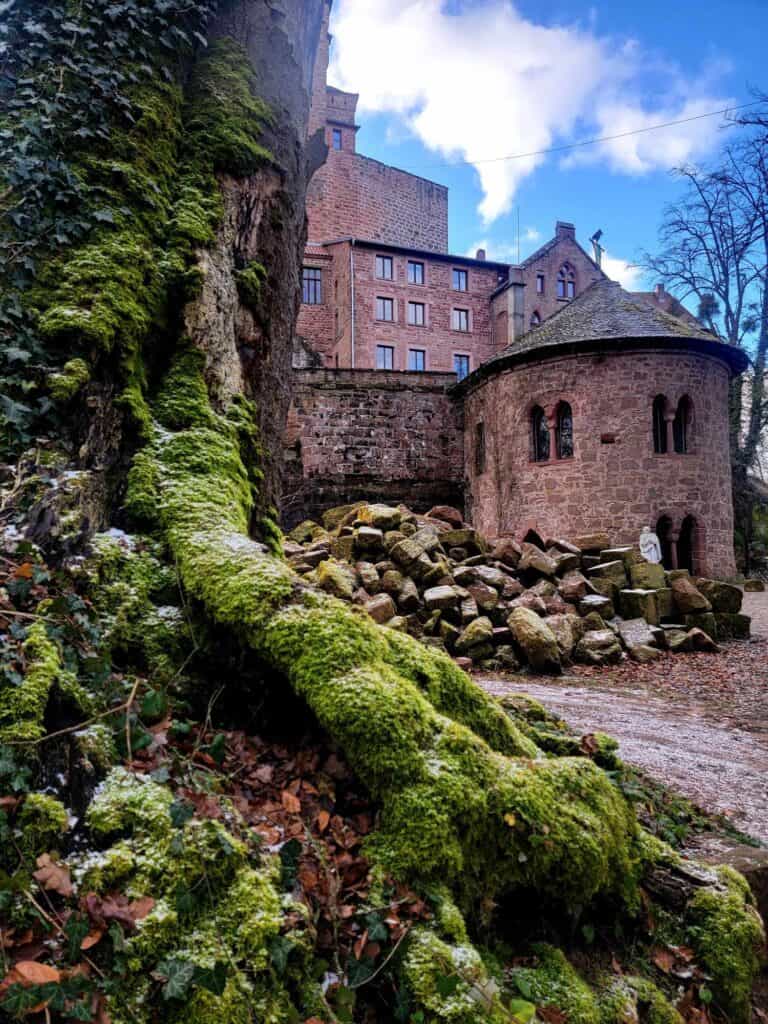
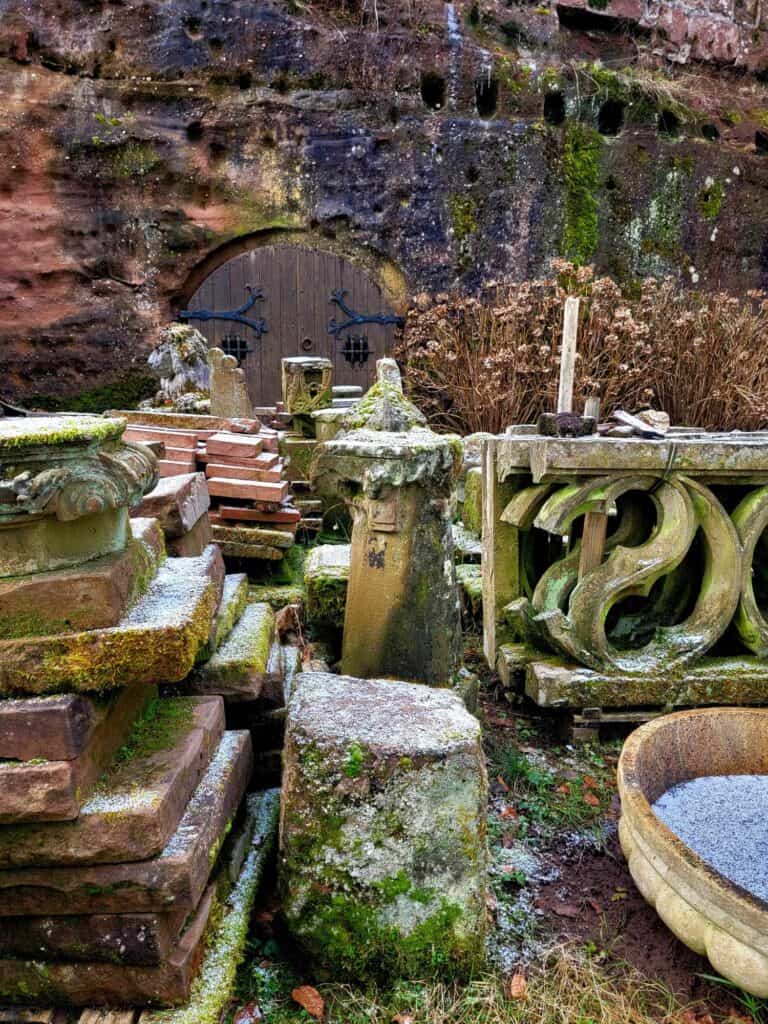
Medieval Beginnings
Berwartstein Castle first appeared in the record books all the way back in 1152, during the reign of Emperor Frederick Barbarossa! The castle was mentioned as a “Reichsburg” (imperial castle), indicating its importance as part of the Holy Roman Empire’s network of defensive fortifications. Emperor Barbarossa gave the impressive structure to the Bishop of Speyer.
Berwartstein Castle served as a military stronghold, protecting vital trade routes that crossed the area, and acting as a strategic outpost in the region, and was important both politically and strategically.
Hans Trapp
Over the centuries, the castle changed hands many times. But there’s no question that its most famous resident was a certain Hans von Trotha known as “Hans Trapp” who lived from 1450 to 1503. A knight, diplomat, and military commander of the entire armed forces of the Palatinate, Hans von Trotha became infamous for his morally questionable strategic use of water to subdue the nearby town of Weißenburg. The ongoing feud led to Hans Trapp first building a dam to cut off Weißenburg’s water supply, and then releasing the dam and causing catastrophic flooding, which ultimately led to his excommunication from the church.
Damage and Restoration
By the 17th century, the castle had suffered significant damage during the Thirty Years War and the War of Palatinate Succession, but restoration efforts in the 19th and 20th centuries brought the fortress back. Today, it’s privately owned and maintained as a historic site that is open to the public!
Comprehensive Guide to Berwartstein Castle (Burg Berwartstein)
🚗 How to Get to Berwartstein Castle
The best way to travel to the castle is by car. You can use public transportation, but it will involve connections and some walking. You can check out those options to find out if using public transport is feasible.
🅿️ Parking
There is a free parking area very close to the castle that is well marked. It’s a two minute walk up a little bit of a slope.
🚻 Restrooms
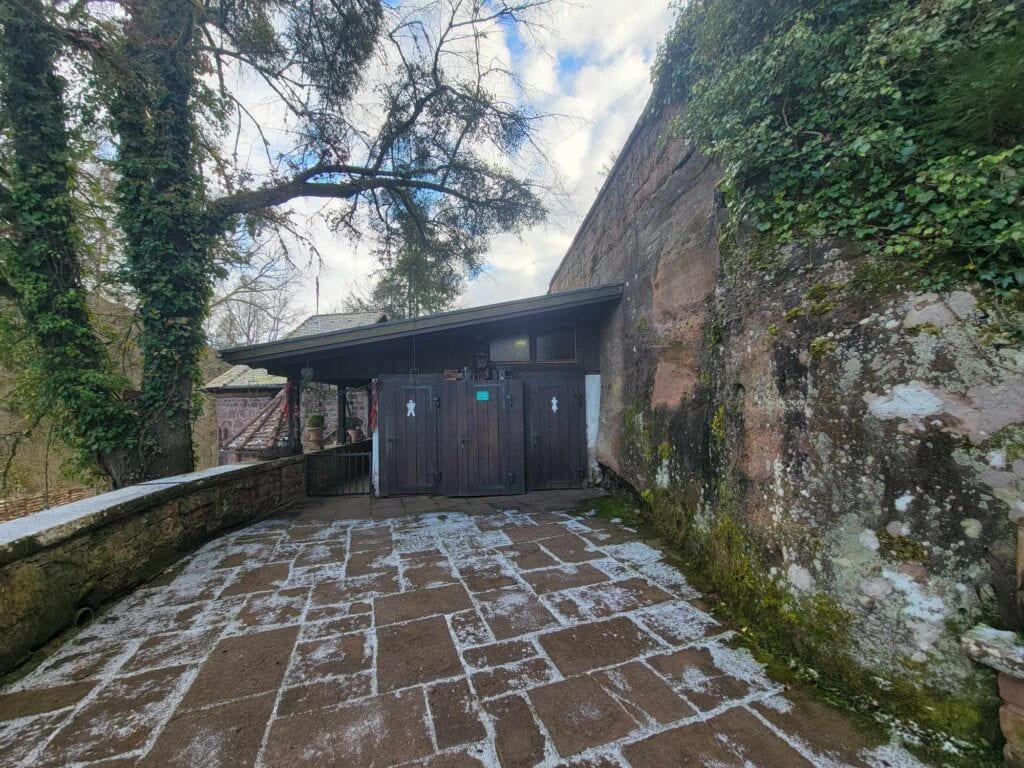
There are restrooms available at the castle, and they are accessible outside the ticket booth so you can use them even if you choose not to tour the castle.
Ticketing
Tickets are €9 per adult, with discounted admission for children, families, or groups. They only accept cash, so make sure you have enough.
Hours and Days of Operation
The castle is open every day from March to October, but open Saturdays and Sundays only from early November through late March.
Guided Tours
The primary way to explore the castle’s interior is through a guided tour with a guide in medieval costume. Tours are usually in German, but you can also get a tour in English or French if you request it ahead of time with the staff. You’ll learn about the history of the castle, its construction, and legends surrounding its inhabitants.You can also explore the castle on your own.
Going inside the castle is definitely worth it to see the interior, check out the beautiful views, look at the gardens from above, and see the exhibits and tunnels. The tour lasts between 45 minutes and an hour which is about how long it took us to go through everything on our own.
They do have very limited signage and a small pamphlet in English/French/German, but it really doesn’t give a lot of information.
Food at Berwartstein Castle
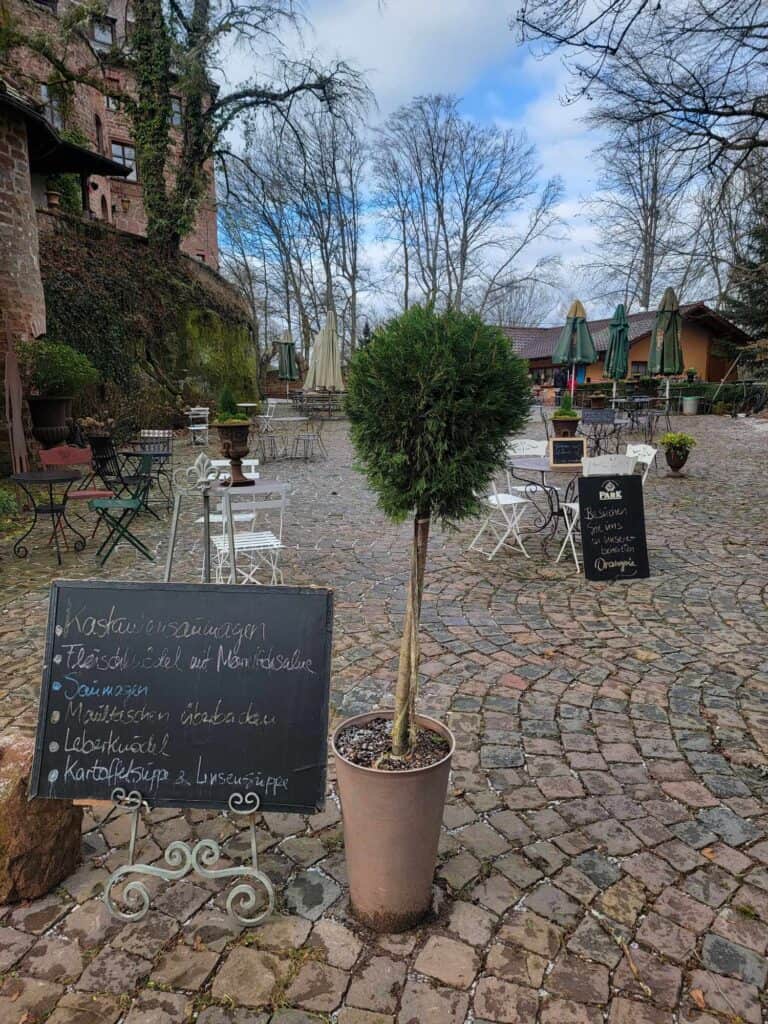
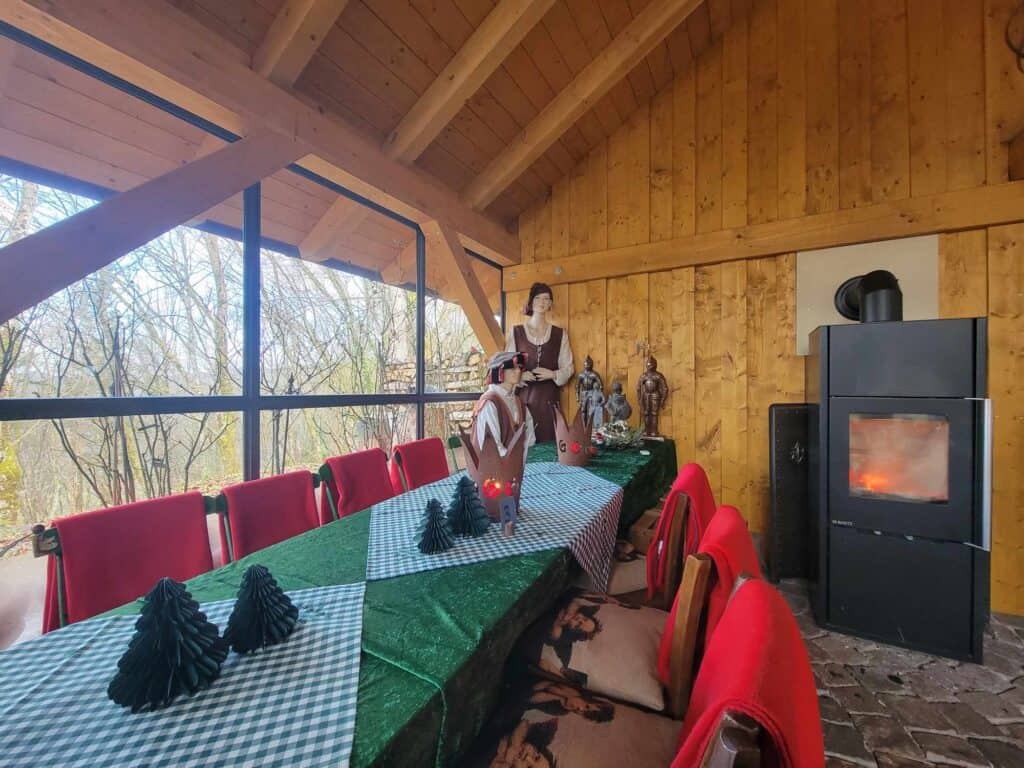
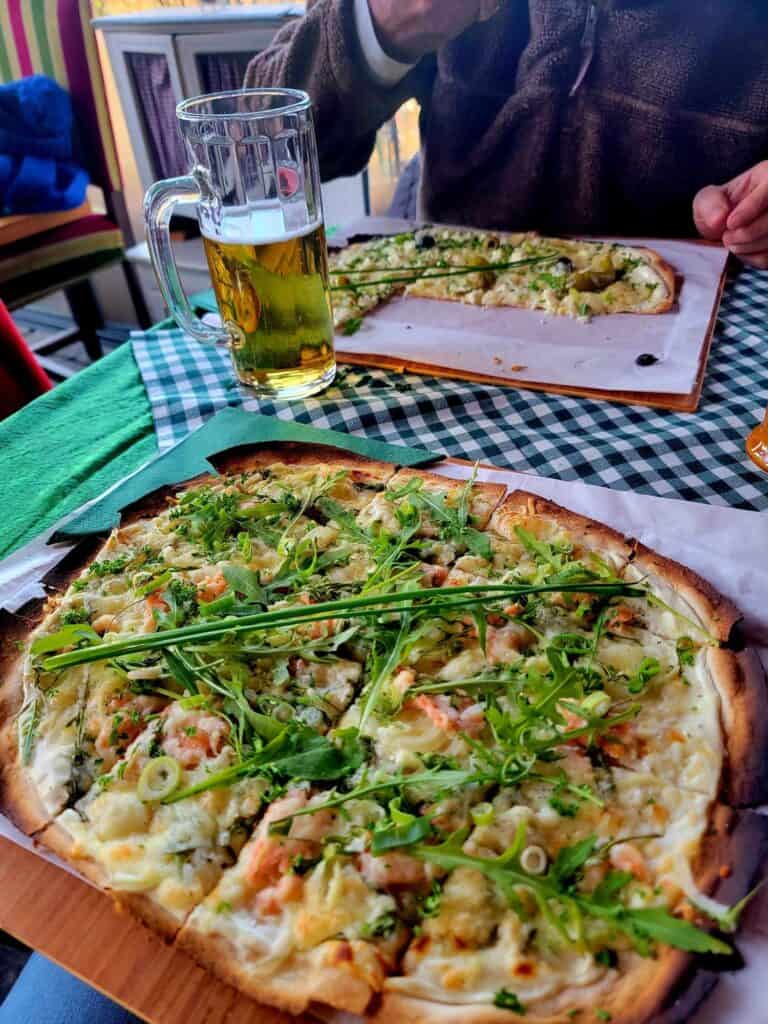
There is a food stand set up in the courtyard where you first arrive. You order and pay, are handed your drinks, and then they bring the food to your table. There is outdoor seating on the terrace, and also an orangerie (heated with cozy wood stoves during the winter) where you can enjoy your meal. They also have a nice selection of beer and wine, and glühwein was still available when we were there.
Offerings include soups, and regional specialties like liver dumplings and saumagen, but flammküchen is their specialty.
Flammküchen is a very thin and crispy flatbread with toppings. The traditional version has bacon, onions, and cream, but other options included a variety of cheeses, olives, peppers, smoked salmon, and more.
Gifts
Tables were set up outside the orangerie with a hodge podge of gifty things ranging from jewelry, to medieval themed items, to antiques.
What is it like to visit Berwartstein Castle?
Chapel
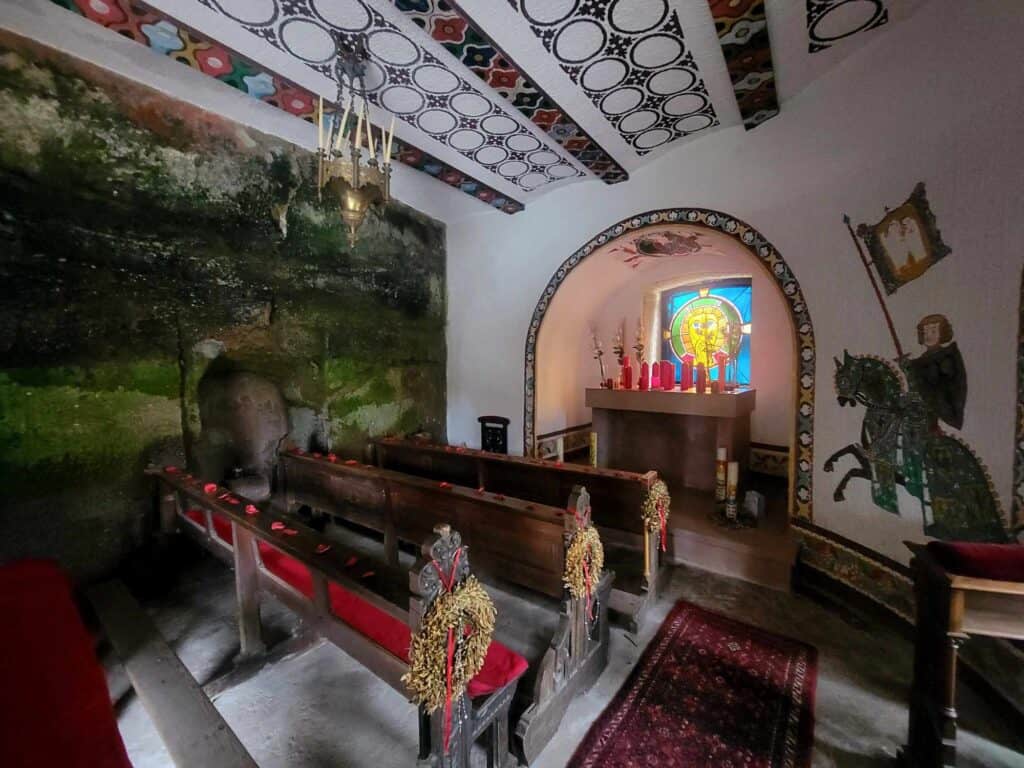
Right after you arrive, you’ll see a little door to your left which leads into a small chapel. It’s easy to miss, so don’t forget to look out for it, and pay a visit. It has several medieval fresco reproductions, a few rows of pews, a chandelier with actual candles, and some modern stained glass.
Castle Interior
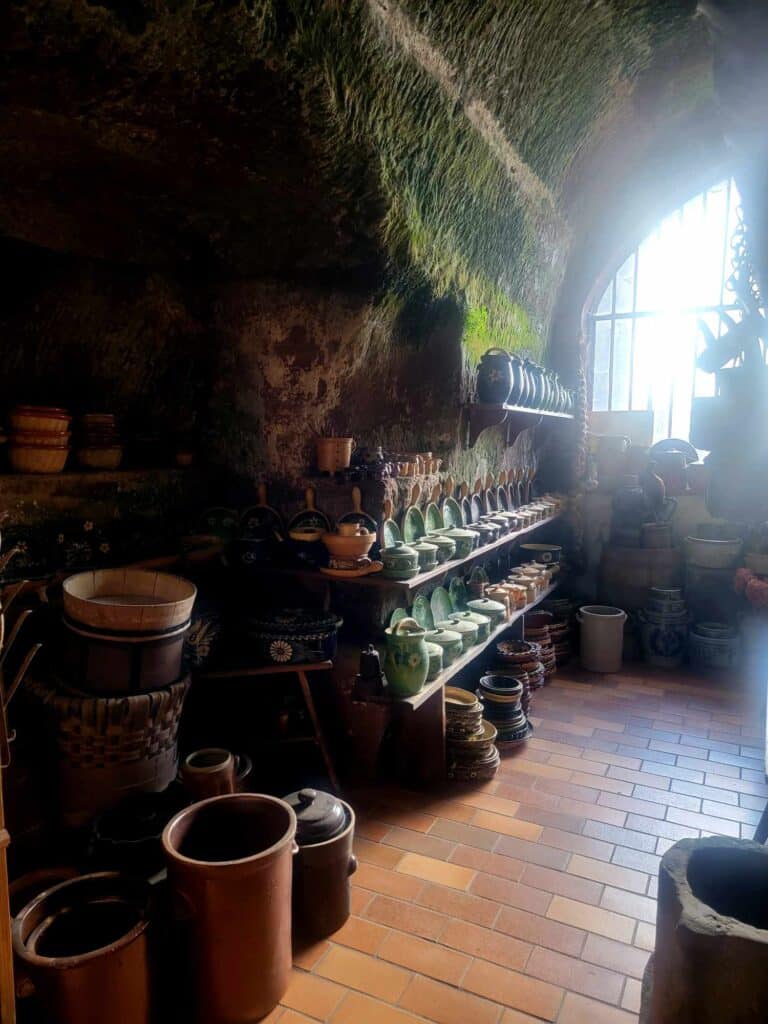
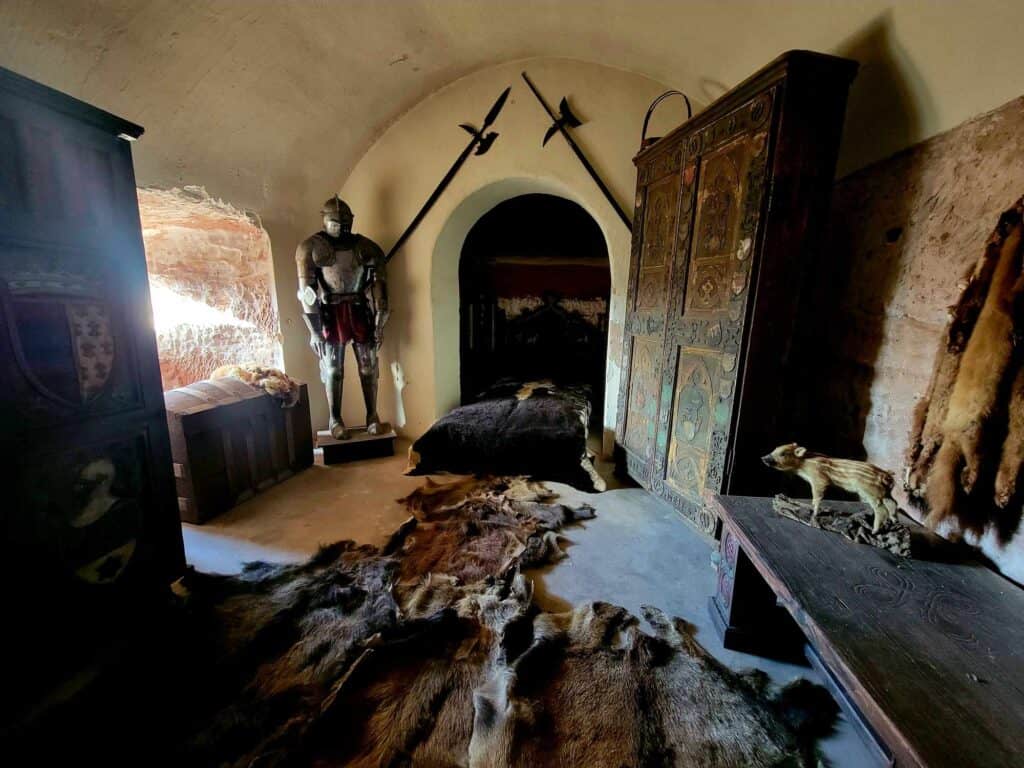
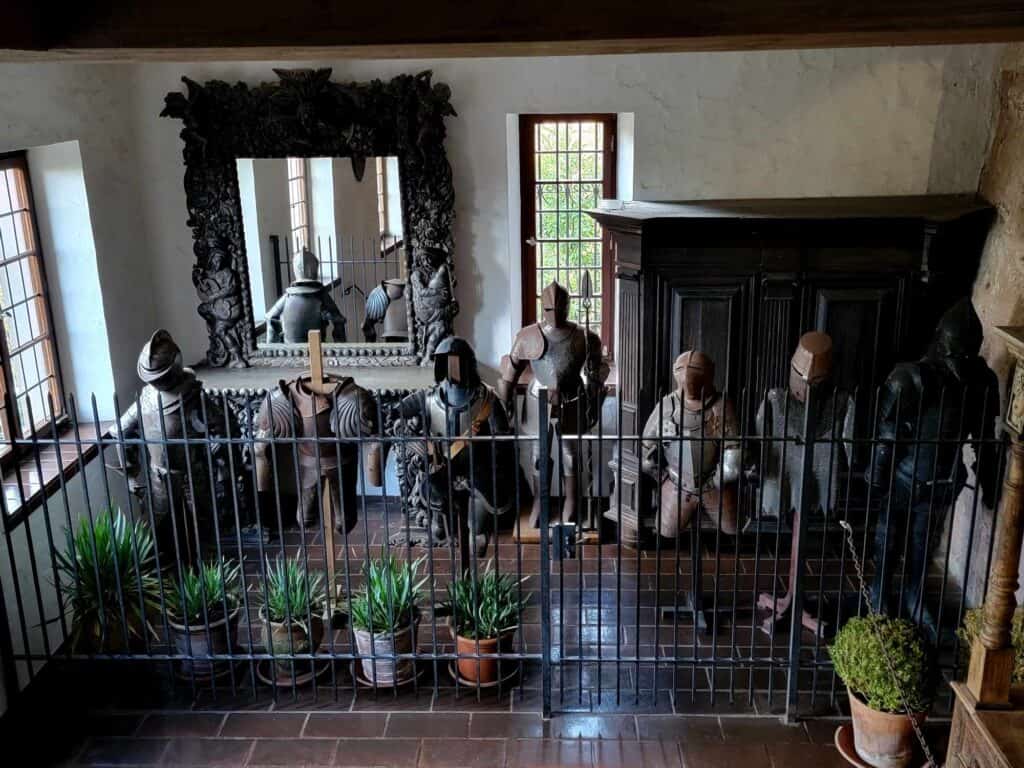
The castle was full of all kinds of interesting things like the well room, a collection of suits of armor, and a series of small rooms which were set up to look like they may have in medieval times. There was a kitchen, a workshop, a bedroom, a dining room, and even a torture room with a rack and other scary looking gadgets. This was not an uncommon system of “justice” during medieval times, but just be aware it’s there if you’re bringing kiddos.
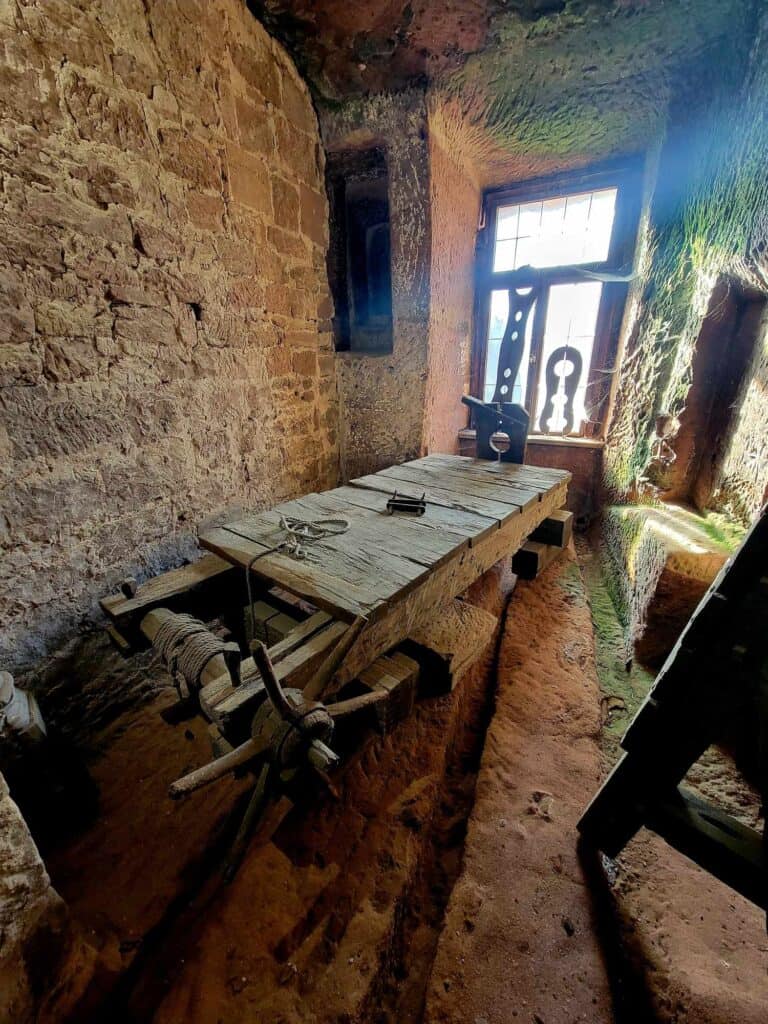
Castle Exterior
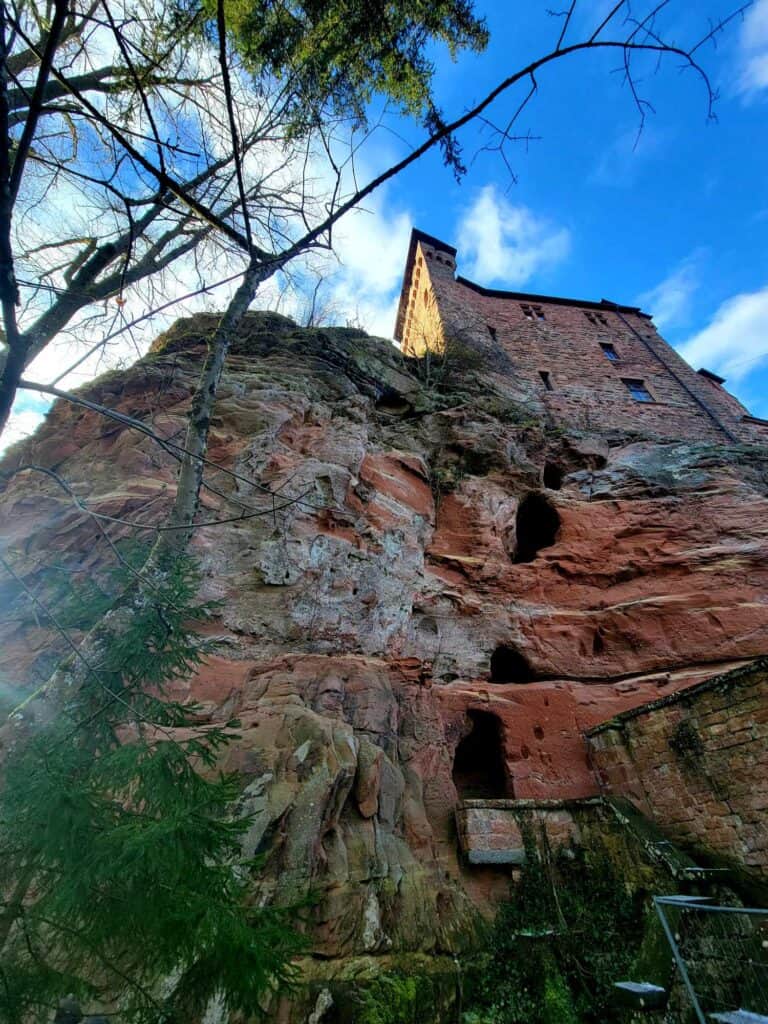
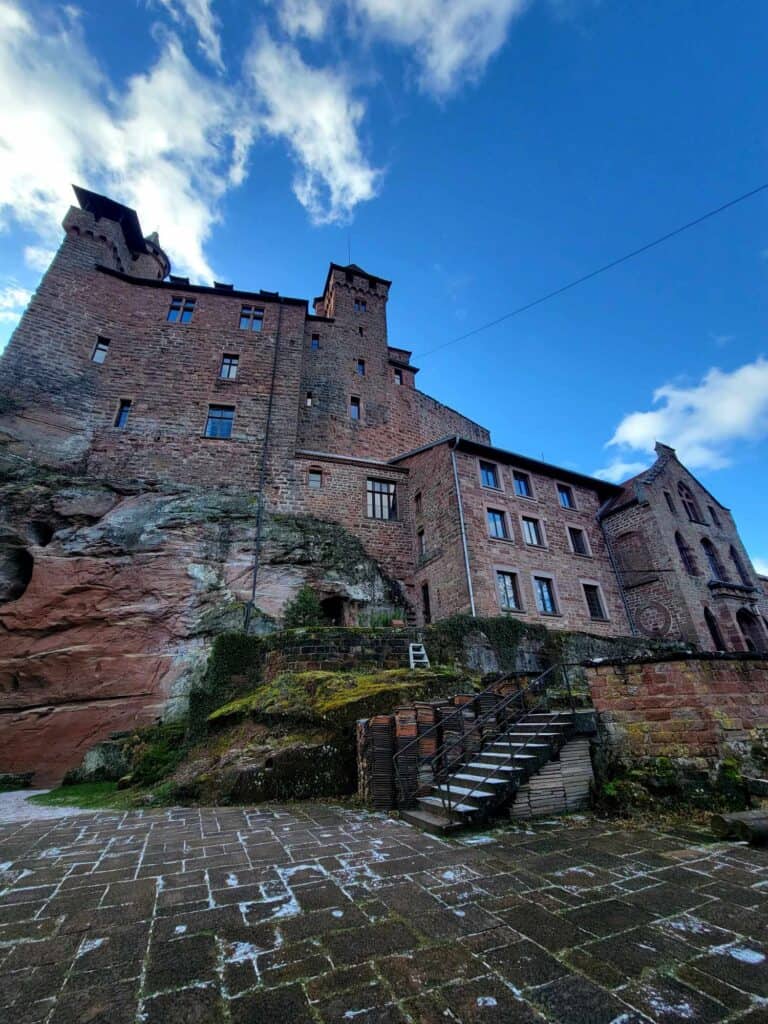
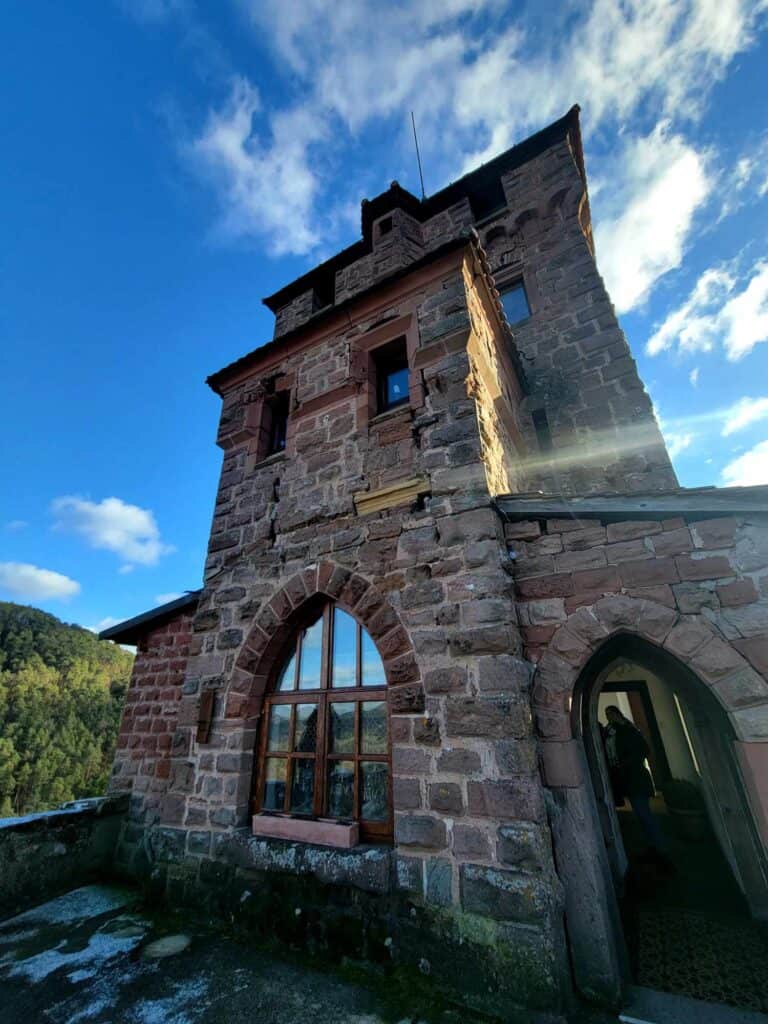
There are also some stunning outdoor terraces and balconies with gorgeous views of the surrounding mountains and forest. Furnishings and paintings authentic to the times can be found throughout the rooms. There’s even a creepy dark tunnel under the castle lit only with candles that you pass through on your way out. Make sure at least someone in your group has a phone charged enough to use the flashlight, because it is DARK down there!
Outside, you’ll be able to see how the castle was built as an extension of the natural sandstone outcropping. And you can walk through the garden, and get some great photos of the castle itself, unobstructed by trees.
Medieval Experiences
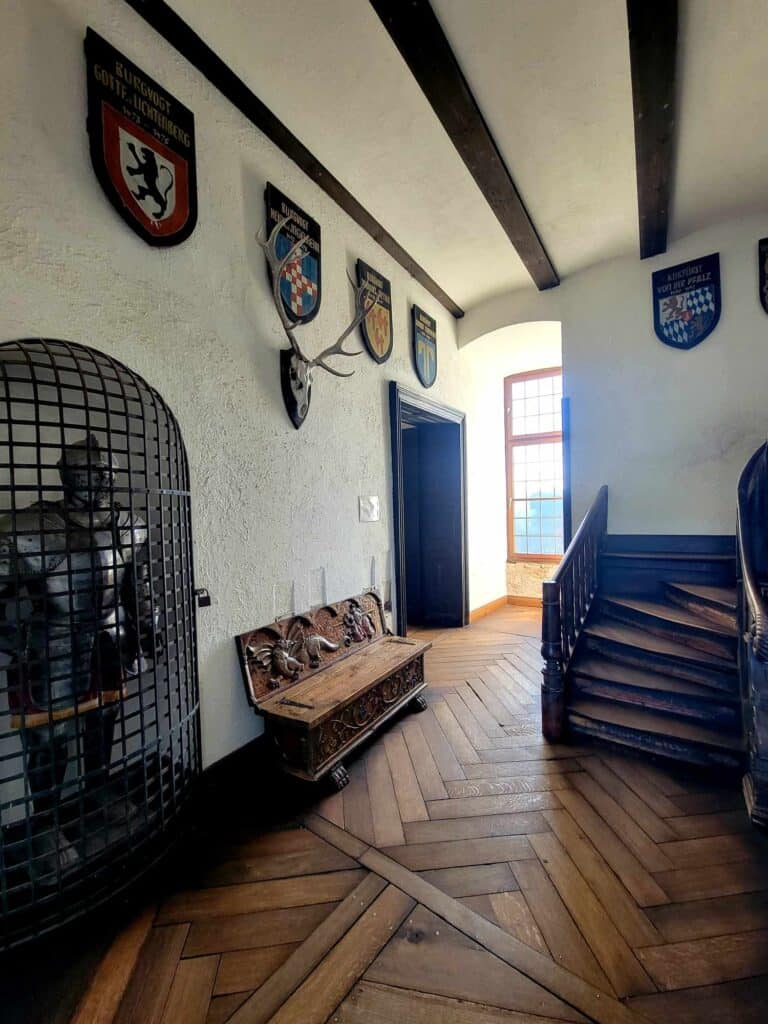
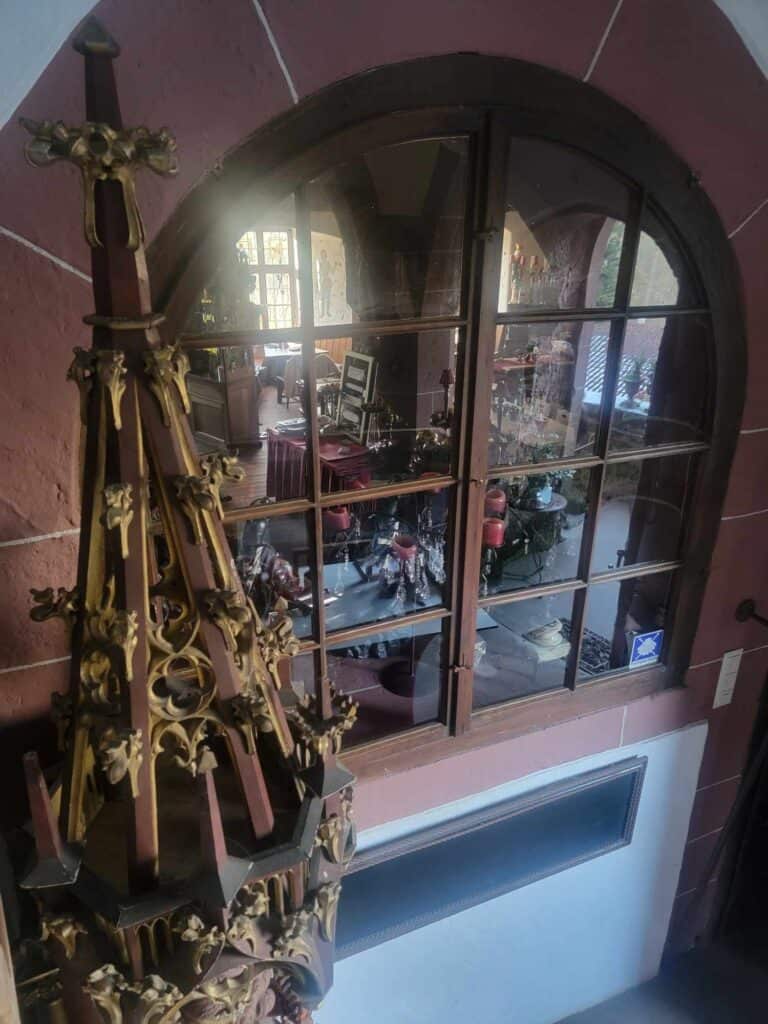
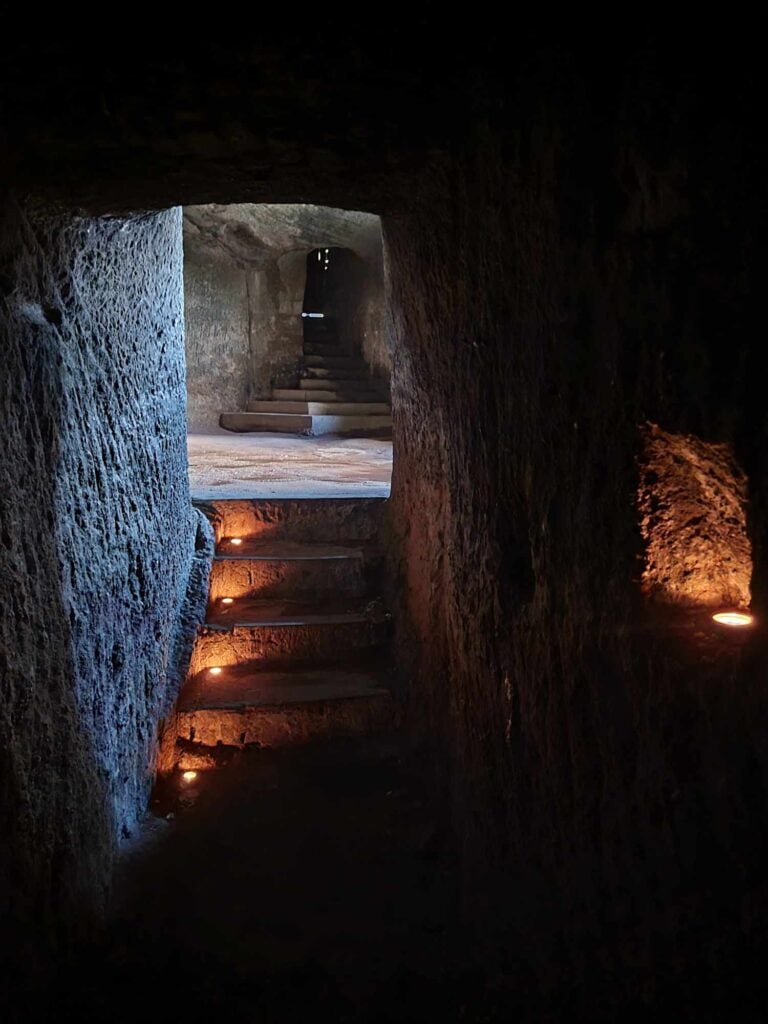
Berwartstein Castle goes above and beyond to make the best use of all its medieval glory!
Knight’s Banquet
Enjoy a banquet in the “Knight’s Hall” located inside the castle! Your servers will be dressed in medieval costume, and after a welcome to the castle, you’ll enjoy all kinds of fun entertainment including jugglers and musicians to keep you amused while you eat.
Torchlight Guide with Knight’s Snack
Adults and kids dress in their best medieval garb and follow a guide through a series of underground tunnels by torchlight! Afterwards there’s grilled sausages and soft drinks by the campfire. Children under 3 are free!
Find details and contact information to secure your Knight’s Banquet or Snack.
Overnight Stays at Berwartstein Castle
And if you’re like me and you always dream of staying overnight in places like this, you’re in luck! There are two areas that can accommodate overnight guests!
The Electors Suite (Kurfürstensuite)
Sleeps four with a double bed and a sleeper sofa in the living room. The suite is located on one of the castle’s upper floors, and you access it through a little secret door. The living room and bedroom have chandeliers, and there is also a bathroom with a shower.
The Barbarossa Tower
This one is accessed from the courtyard outside, up a flight of sandstone steps. With stone in the interior, and arched gothic leaded windows, it’s definitely the full castle experience!
Here’s information on how to reserve these unique and beautiful spaces.
🐾 Is Berwartstein Castle Dog Friendly?
Berwartstein Castle is dog friendly! There was even a dog on the inside castle tour while we were there. Obviously be sure your dog is controlled and on a leash at all times.
♿️ Accessibility
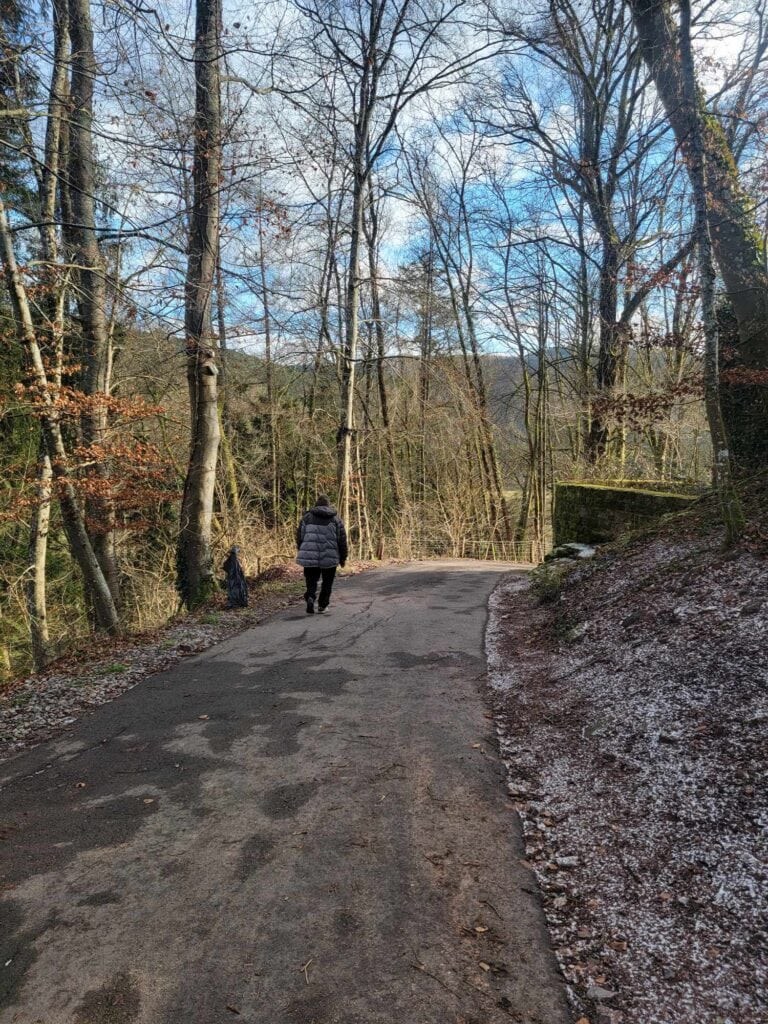
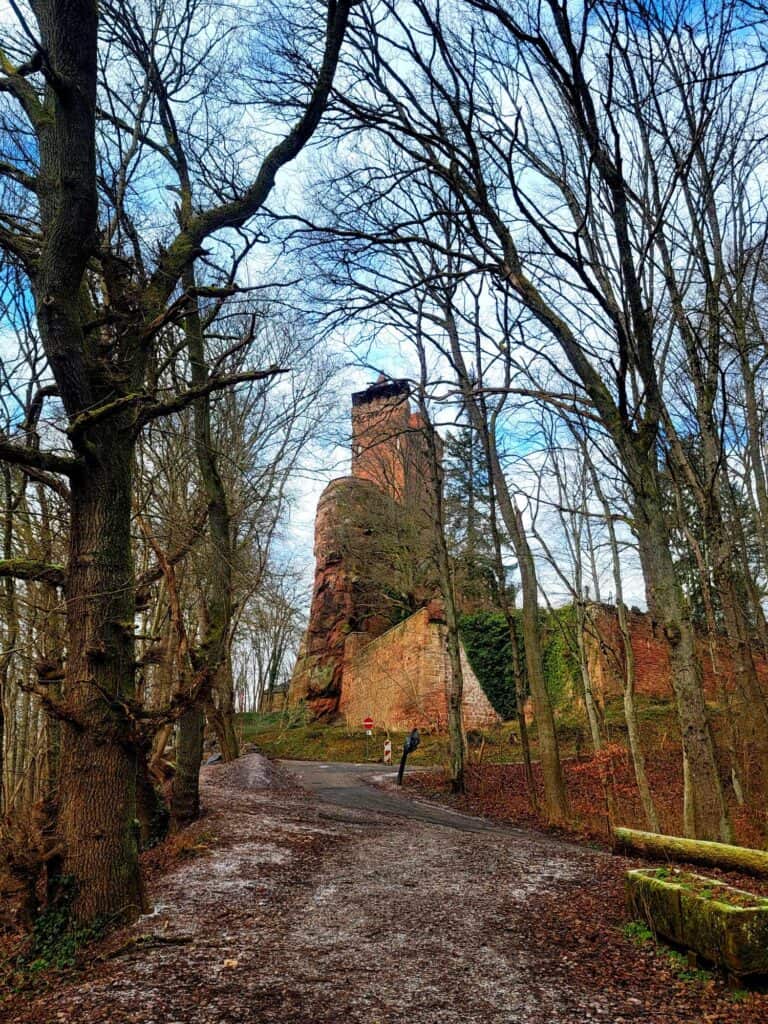
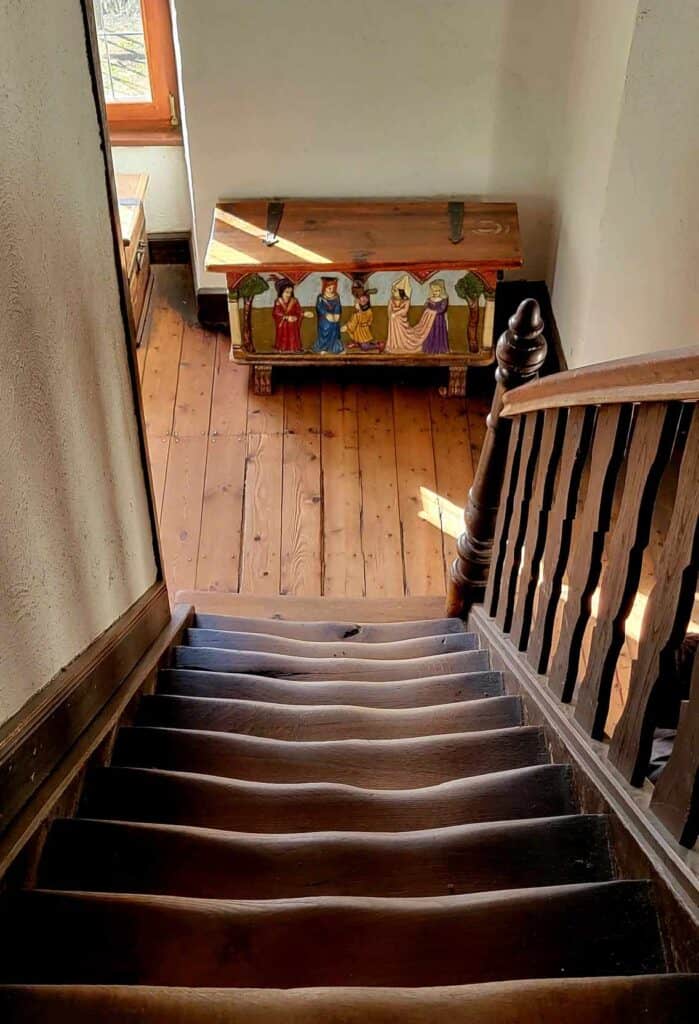
It’s a 2 minute uphill walk to get to the castle from the parking lot. Once you arrive, the food stand will be right in front of you in a nice flat area. The restrooms require two medium sized flights of stairs.
To fully experience the inside of the castle you’ll need to do another four flights of stairs, but only one at a time with rests in between. The stairs are definitely old and worn unevenly so be cautious.
There are no elevators or ramps, which is the norm for castles like this.
It’s probably not the best place for those who really have limited mobility, but you know yourself and your guests best.
See You at Berwartstein Castle!
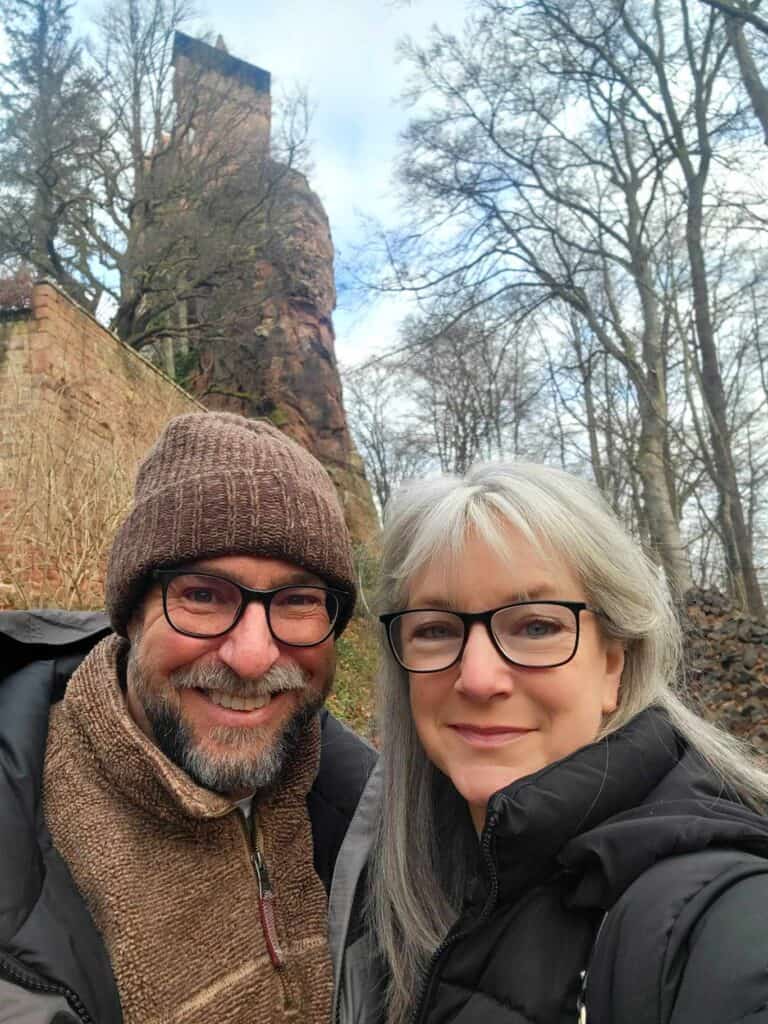
We had a fantastic day at the castle! We were coming from the Kaiserslautern area so it was a relatively quick trip for a big reward. We enjoy hiking to the many castle ruins in the area but most don’t have real infrastructure or amenities like food, or bathrooms.
So we really appreciated the care that has been taken to not only restore the castle, but to provide a real glimpse of what it must have been like in medieval times for those who visit. It had it all – history, aesthetics, legends, scenic beauty, and a great flammküchen and beer. Berwartstein Castle is definitely on our list of places to take guests, and to visit again just to appreciate the relaxing atmosphere and medieval charm!
🌦Check current weather conditions at Berwartstein Castle
Other Posts You May Enjoy:
- 28 Best Day Trips from Kaiserslautern: Your Ultimate Guide
- 21 Best Things to Do in Kaiserslautern Germany
- Explore the Astounding Schlossberg Caves and Castle Ruins in Homburg
- Ultimate Guide to Frankenstein Castle in Frankenstein Germany
- Hike to Hohenecker Castle in Kaiserslautern Germany
- Explore Fascinating Nanstein Castle in Landstuhl Germany
- Stahleck Castle in Bacharach: A Gorgeous Hike with a Dark Past
- Discover Charming Hohenbaden Castle Overlooking Baden-Baden
- A Real-Life Fairytale Castle in Germany – Discover Miraculous Burg Eltz
- Saarbrücken Castle – Explore this Fascinating Underground World
- Lowenburg Castle: a Remarkable Medieval Castle that Isn’t!
- Your Ultimate Guide to Visiting Nuremberg Castle: History, Tips & Must-Sees
Don’t forget to subscribe to The Adventure Lion’s free monthly newsletter, ‘The Scenic Detour’ for more great content about exploring Europe’s lesser-known cities and hidden gems!
